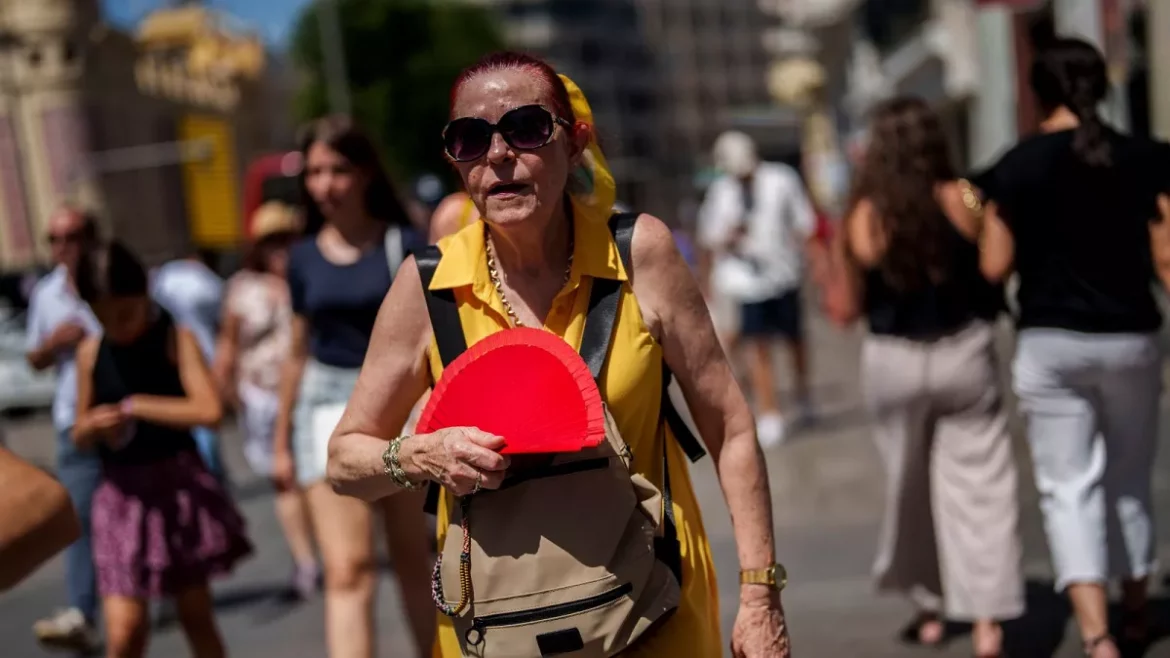Latest data by the World Health Organisation (WHO) has shown that the European Region is the fastest-warming of the 6 WHO regions, with temperatures rising at around twice the global average rate.
Across the Region, with 53 Member States, people are said to be paying the ultimate price. The 3 warmest years on record for the Region have all occurred since 2020, and the 10 warmest years have been since 2007.
in response to the deadly impacts of rising temperatures all over the world, the United Nations Secretary-General António Guterres issued a Call to action on extreme heat.
In his call, Guterres said that In some places around the world, the climate crisis is already driving temperatures up to unbearable levels and estimates show that, globally, approximately 489 000 heat-related deaths occurred each year between 2000 and 2019, with the Region accounting for 36% or, on average, more than 175 000 deaths every year.
Read also: <a href=”https://newsrounds.econaiplus.com/report-shows-climate-change-deniers-make-up-nearly-a-quarter-of-us-congress/”>Report shows climate change deniers make up nearly a quarter of US Congress</a>
The Secretary-General’s Call identified 4 critical areas of action on caring for the vulnerable, protecting workers, boosting the resilience of economies and societies, and limiting global temperature rise to 1.5°C.
“This could not be more relevant for the Region where, over the past 20 years, there has been a 30% increase in heat-related mortality, with heat-related deaths increasing in almost all countries of the Region where monitoring is in place,”he said.
Heat stress is said to be the leading cause of climate-related death in the Region. Temperature extremes exacerbate chronic conditions, including cardiovascular, respiratory and cerebrovascular diseases, mental health, and diabetes-related conditions. Extreme heat is a problem particularly for elderly people, especially those living alone. It can also place an additional burden on pregnant women.
The development of heat–health action plans is a crucial adaptation process, making communities more resilient to heatwaves. More than 20 countries in the Region have such plans in place. While this is encouraging, it is not enough to protect all communities.
Find below WHO/Europe’s annual #KeepCool campaign to raise awareness about the dangers of extreme heat and the simple guidance that can keep everybody safe.
Keep out of the heat. Avoid going out and doing strenuous activities during the hottest time of day. Stay in the shade and do not leave children or animals in parked vehicles. If necessary and possible, spend 2–3 hours of the day in a cool place, such as a supermarket or cinema.
Keep your home cool. Use night air to cool down your home. Reduce the heat load inside your home or hotel room during the day by using blinds or shutters.
Keep your body cool and hydrated. Use light and loose-fitting clothing and light bed linen, take cool showers or baths, and drink water regularly, while avoiding sugary, alcoholic or caffeinated drinks due to their dehydrating effect on the body.
Take care of yourself and others. Check on family, friends and neighbours, especially the elderly, who spend much of their time alone.
Story was adapted from <a href=”https://www.who.int/azerbaijan/news/item/01-08-2024-statement–heat-claims-more-than-175-000-lives-annually-in-the-who-european-region–with-numbers-set-to-soar”>WHO. </a>
